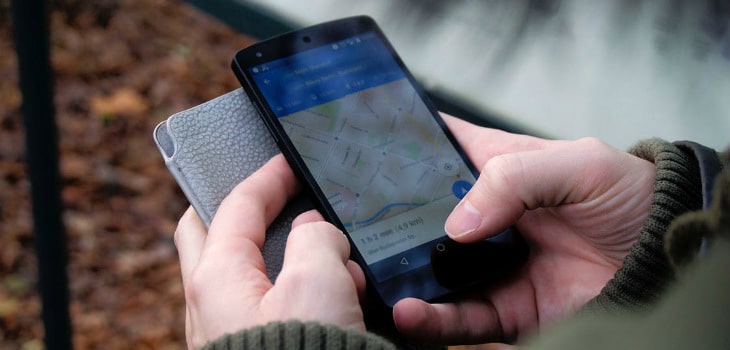How to Hack Google Map Results
Written by Dana Flannery
It’s the number one traffic driver—for both foot and web, and it’s only on the rise. Google’s local search is the best way for clinics and allied health SMEs to find new clients. Unfortunately, your rankings on this platform are largely determined by the number and quality of testimonials on your listing and you’re legally forbidden to procure them.
As a practitioner or business in the health space, procuring testimonials may contravene the National Guidelines for Advertising Regulated Health Services. The laws apply to both registered and unregistered health service providers or businesses. Using kind words from customers is risky, even if you didn’t expressly request them. To avoid complications, you should always consult your advisory body before you enable testimonials on any of your online marketing activity.
How does a Google Map ranking work?
Google determines where your clinic (also known as a ‘place’) will rank on the map in terms of local searches. By accessing the Google My Business portal, you’re able to set up and optimise your listing, so that it ‘triggers’ local algorithms and your listing is displayed on Google Maps. The main factors that determine the order of listings include:
- Relevance of your website to your local listing;
- Accurate “NAP” information (Name/Address/Phone) across your website, a Google My Business listing, and independent mentions of your business online;
- Having a complete and keyword rich listing, including the “About” tab information on Google+;
- The quality and quantity of testimonials on your listing, and on other review or social media sites.
Once all of your local competitors have created highly optimised listings, ranking order comes down to the testimonials.
What specifically does the advertising code say about testimonials?
There are a few things that these guidelines state you cannot do. These include:
- Use testimonials or purported testimonials about the service or business in advertising—including your Facebook page, print, radio, television or on your website;
- Encourage patients to leave testimonials or comments about your service or business online. Including, but not limited to a variety of social media sites which expressly include Facebook, WOMO, blogs and True Local.
Walking the fine line—health industry testimonials on Google Local
You only need to do a local search once to see just how many health practitioners use testimonials to improve their rankings. So, how do they get away with it?
The Australian Health Practitioner Regulation Agency (APRHA) states the following:
“Consumer and patient information sharing websites that invite public feedback/reviews about experience of a regulated health practitioner, business and/or service are generally intended to help consumers make more informed decisions and are not considered advertising of a regulated health service. To clarify, practitioners are not responsible for removing (or trying to have removed) unsolicited testimonials published on a website or in social media over which they do not have control.”
What does this mean for health industry SMEs and practitioners?
- Customers may post testimonials to third party sites designed to help other potential customers make informed choices;
- These “helpful” sites are not considered advertising platforms, so do not fall under health industry regulations;
- You are not required to have these testimonials removed.
Does Google’s Maps platform fall under this “non advertising” category?
It’s a question you should ask your peak body or advisory board to be 100 per cent sure, however, Google’s states the purpose for reviews on local business listings is to provide quality information for potential customers.
Additionally, you actually have no say over testimonials displayed on your Google My Business profile—it’s not possible to disable them. Therefore it’s not a platform over which you have complete ‘control’. It’s a fine line.
Google, therefore, may qualify as a website or social medium over which practitioners have seemingly no control. It exists for patients to publicly share information. Regardless, you cannot request that patients leave you glowing reviews on Google, no matter your interpretation, the guidelines are very clear on procurement.
Drive traffic using the other Google algorithm
Google’s main algorithm interacts with the Google My Business ones, however, testimonials are not a major driving factor in organic search results. For local practitioners, ranking well in organic search results means giving your patients the same, high quality experience on your website as you do in your clinic.
Create a website that’s easy and enjoyable to use, and that’s embedded with natural and valuable keywords that relate to your industry. In some cases, you may require a search engine optimisation (SEO) consultant to help you implement the best strategy. But in the meantime, create content that is clear and easy to understand (for both patients and for search engines), and that’s useful. Make it simple for them to take the next step and make a booking, or to contact your business.
And last, but not least, share your knowledge on other websites and ask them to link back to you. Grow your own reputation online to bring in more patients and more interest from search engines
-
Get your FREE ticket
- REGISTER NOW









